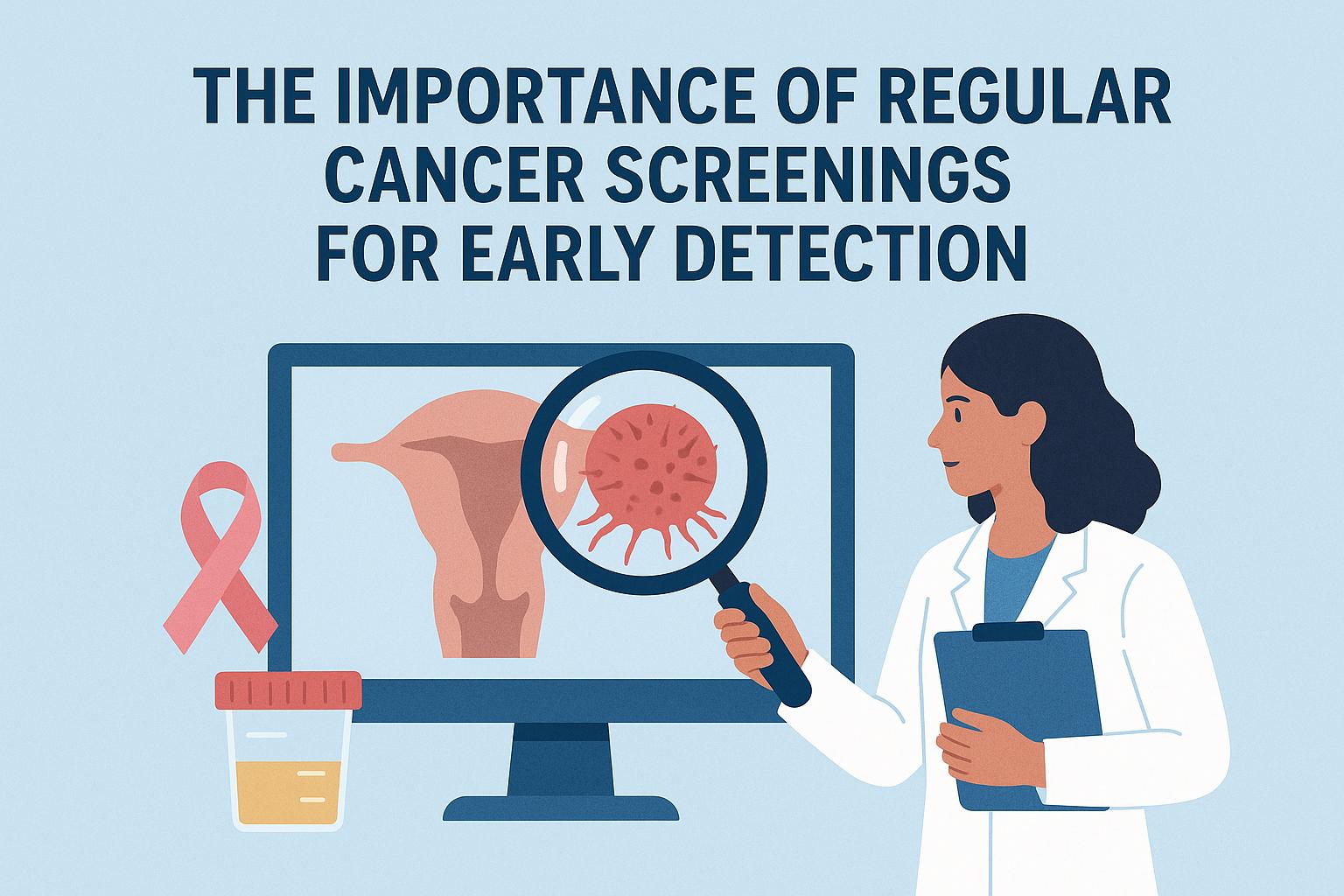The Importance of Regular Cancer Screenings for Early Detection
Regular cancer screenings play a critical role in the early detection of numerous types of cancer. Early detection significantly increases the likelihood of effective treatment and can lead to improved survival rates. This article examines why regular cancer screenings are essential and how they benefit individuals and healthcare systems.
What are Cancer Screenings?
Cancer screenings involve medical tests that search for cancer before symptoms manifest. Unlike diagnostic tests used for symptomatic patients, screenings are typically conducted routinely and aim to find cancer at an early, more treatable stage. Different screenings are recommended depending on age, gender, family history, and risk factors. Some common screening tests include mammograms for breast cancer, Pap tests for cervical cancer, and colonoscopies for colorectal cancer.
Screenings aim to detect cancer at its earliest and most curable stage. By identifying abnormalities before symptoms develop, the chance for successful treatment increases dramatically. Screenings are a proactive approach to healthcare, allowing individuals to take charge of their health and potentially avoid more aggressive and less successful treatments.
Benefits of Early Detection
Detecting cancer early through regular screenings can offer several advantages:
Increased Treatment Options: When cancer is identified early, there are generally more treatment options available. This flexibility can lead to optimal treatment strategies tailored to the individual’s specific condition. Early detection often includes less invasive treatment options, preserving more healthy tissue and reducing the recovery time.
Better Prognosis: Early-stage cancers usually have a better prognosis compared to advanced stages. Treatment is more likely to be effective and have a higher success rate. The earlier cancer is caught, the higher the likelihood of complete remission. Survival rates are significantly higher when treatment starts at an early stage, often transforming a potential life-threatening condition into a manageable one.
Cost-effective Treatment: Treating early-stage cancer is often less expensive compared to advanced cancer, which can require more complex and prolonged treatments. The costs associated with advanced cancer include more extensive surgery, hospitalization, and long-term therapy, which can place a significant financial burden on patients and healthcare systems.
Screenings and Risk Factors
Regular screenings should be considered based on individual risk factors. People with a family history of cancer, genetic predispositions, or other risk factors may need to start screenings earlier or have them more frequently. It is essential to consult with healthcare professionals to determine an appropriate screening schedule tailored to your personal risk profile.
Risk factors play a significant role in determining the need and frequency of cancer screenings. For instance, individuals with specific genetic mutations, such as BRCA1 and BRCA2, are at a higher risk for breast and ovarian cancers and may require earlier and more frequent screenings. Lifestyle factors also contribute to risk. Those who smoke or have exposure to carcinogens may need screenings for lung or other related cancers more often.
More information on scheduling and types of screenings can be found on associated health organization websites, such as the American Cancer Society. These resources provide guidelines based on the latest research and consensus from experts in oncology.
Screening Guidelines and Recommendations
The guidelines for cancer screenings can vary by country, medical organization, and specific cancer type. For example, the National Cancer Institute provides comprehensive resources and guidelines that help determine appropriate screening intervals and methods. It is important to stay informed about the latest recommendations through reliable sources and consult with healthcare providers to make informed decisions about cancer screenings.
Screening guidelines are often updated as new research becomes available. These updates reflect advancements in understanding cancer pathogenesis and how specific tests perform in real-world scenarios. Keeping abreast with these changes ensures that screening methods are both effective and safe, minimizing potential harms caused by over-testing or false positives.
Healthcare providers play an essential role in advising patients on necessary screenings. Discussions about personal and family medical histories, lifestyle factors, and potential workplace exposure to harmful substances are crucial in tailoring screening recommendations. Developing a screening plan can serve as a preventative step in healthcare strategies, potentially leading to earlier interventions and better health outcomes.
In conclusion, regular cancer screenings are a valuable tool in the early detection of cancer. By allowing for timely and potentially less invasive treatment, they play a crucial role in improving outcomes and saving lives. Engaging in regular screenings and following expert guidelines helps maximize the potential benefits of early detection; thus, they should be an integral part of preventive healthcare strategies.
Regular cancer screenings foster a proactive approach to health management. They convert medical care from being reactive—dealing with issues as they arise—to one that emphasizes prevention and foresight. While not all cancers can be detected early, many can, and routine screenings offer the best chance of finding cancer in its nascent stages, when treatment can often eradicate it or keep it under control effectively.
The development of public health policies emphasizing cancer screenings has had a notable impact on community health. Such policies increase awareness, encourage self-care, and contribute to reduced cancer mortality rates overall. They also underscore the importance of making screenings more accessible to diverse populations, ensuring that barriers such as cost, language, and geography are minimized.
Ultimately, engaging in regular cancer screenings is an act of self-care and community responsibility. By taking advantage of these critical health evaluations, individuals can participate in the collective effort to combat cancer’s impact, aiding in the pursuit of more sustainable health care strategies and the improved well-being of society at large.
This article was last updated on: November 6, 2025

